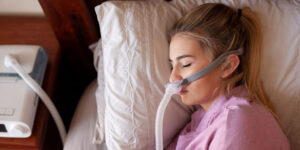The Importance of Proper Sleep Posture in Reducing Snoring
Snoring is a common issue that affects the sleep quality of millions worldwide. While various factors contribute to this nocturnal noise, many are unaware that sleep posture plays a crucial role. By adopting the correct sleeping position, you can enhance sleep quality and potentially reduce or eliminate snoring. This article delves into the significance of posture and how simple adjustments can make a substantial difference.
The Importance of Proper Sleep Posture in Reducing Snoring
Snoring occurs when the airways are partially obstructed, causing vibrations in the throat tissues. Poor posture can exacerbate this issue by further compressing the airways. The good news? Adjusting your sleep position can significantly reduce these obstructions.
How Sleep Position Influences Snoring
- Sleeping on Your Back Can Worsen Snoring When lying on your back, gravity causes the tongue and soft tissues to fall backward, partially blocking the airways. This obstruction can lead to louder snoring.Example: Individuals who snore more intensely on their backs often notice improvement when changing positions.
- Side Sleeping to Clear the AirwaysSleeping on your side is often recommended for snorers. In this position, the tongue doesn’t fall backward, allowing air to flow more freely through the airways.Tips for Side Sleeping:
- Use a body pillow to maintain this position.
- Sew a tennis ball into the back of your pajama top to prevent rolling onto your back during the night.
Benefits of Proper Posture for Breathing
- Improved Spinal AlignmentMaintaining good posture during sleep helps align the spine and neck correctly, reducing pressure on the airways. Optimal alignment allows air to circulate more freely, decreasing the vibrations that cause snoring.Tip: Use a pillow that adequately supports your neck and head to maintain alignment throughout the night.
- Using an Ergonomic Pillow for Better BreathingAn ergonomic pillow can help keep the head slightly elevated, preventing the tongue from falling back and obstructing the airways. This can be particularly beneficial for individuals with mild sleep apnea.Recommendations:
- Opt for a memory foam pillow that conforms to the natural curve of your neck.
- Consider wedge pillows to slightly elevate the head.
Techniques and Tips to Improve Sleep Posture
- Adjusting Pillow Height to Reduce SnoringA pillow that’s too thick or too thin can lead to poor neck posture, increasing the risk of snoring. The ideal pillow height varies depending on your preferred sleep position.Tips:
- If you sleep on your side, use a firm pillow to fill the space between your head and the mattress.
- If you sleep on your back, opt for a thinner pillow to maintain proper neck alignment.
By making these simple adjustments to your sleep posture, you can significantly reduce snoring and enjoy more restful nights. Remember, consistency is key. It may take some time to adapt to new sleeping positions, but the benefits for both you and your partner are well worth the effort.
Sources : ‘Arreter de ronfler » The french’s scientist 2025@











